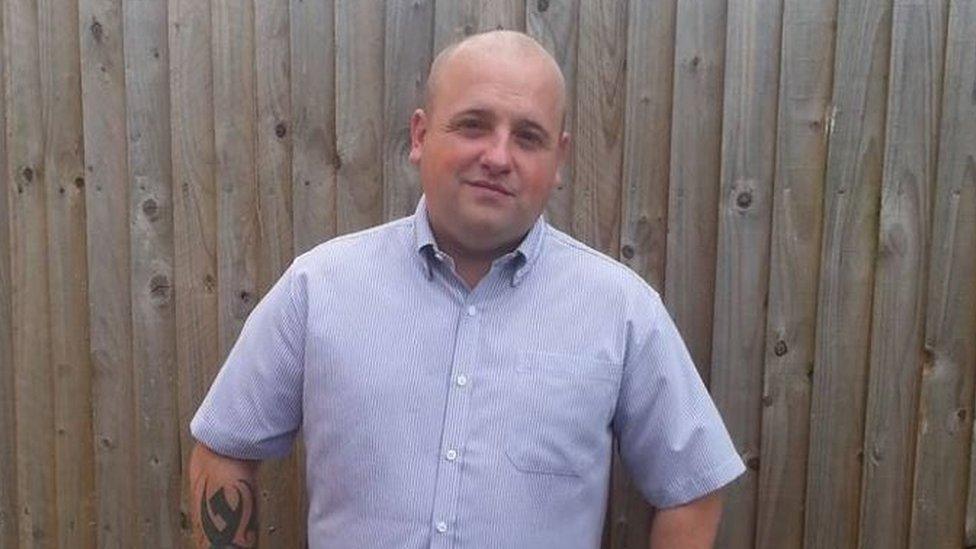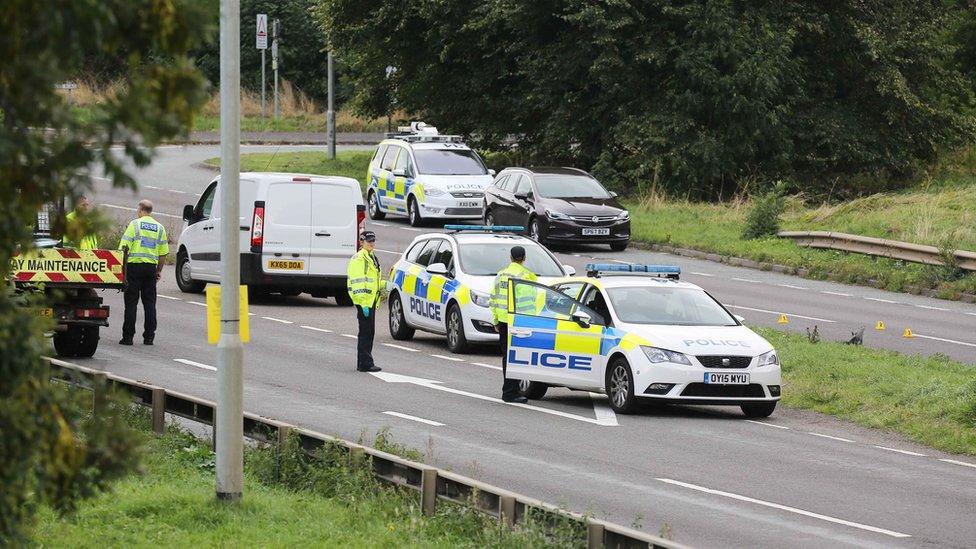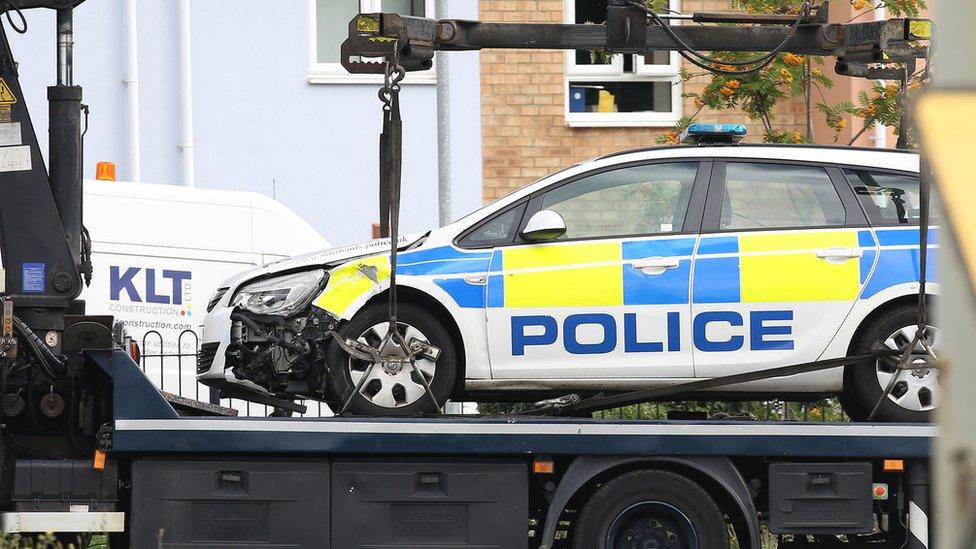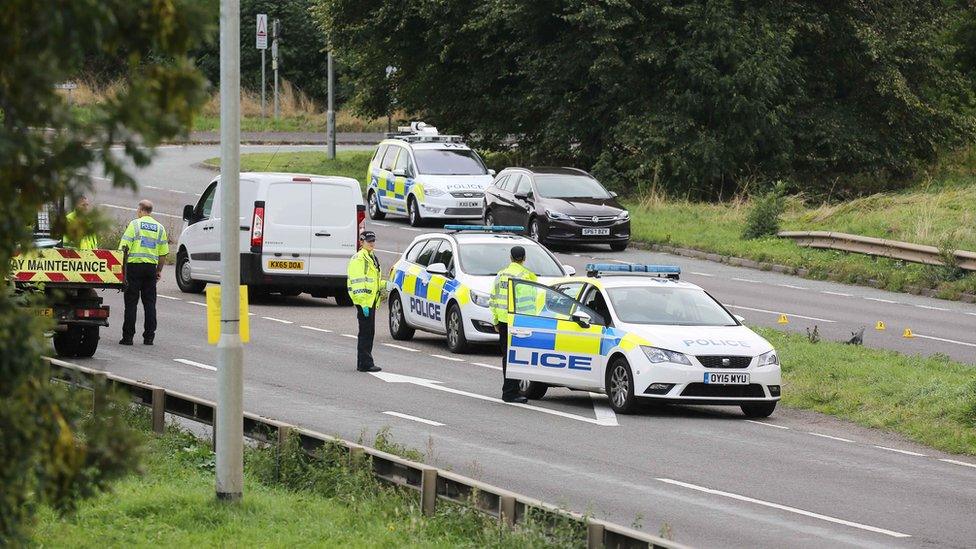Northampton police crash death: Victim 'was lying in road'
- Published

William Smith died at the scene of the collision on the A43.
A man who was "drunk" and lying in the road was hit and killed by a police car responding to an emergency call, an inquest heard.
William Smith, 32, was hit by the car going 74mph (119km/h) on a 50mph (80km/h) limit dual carriageway in Northampton on 9 September 2018.
Father-of-three Mr Smith died at the scene with chest and abdominal injuries.
A jury of nine women and two men returned a verdict of accidental death.
The inquest heard that Mr Smith, who was described as "sociable" and worked for food packager Greencore, had been drinking beer at bars in Northampton before returning to a friend's house at 02:30 BST.
Both his ex-partner and a bouncer from one of the bars described Mr Smith as "very drunk".
He left the house at about 03:30 BST, walking in the direction of the A43 Lumbertubs Way, where the dual carriageway divides the residential areas of Boothville and Thorplands.

The crash happened between the Round Spinney and St Gregory's Road roundabouts
Accident investigator John Underwood said at the time of the crash the two officers in the Northamptonshire Police car had been responding to an emergency call in Brackley in the south of the county.
He said the 74mph (119km/h) the vehicle was travelling was "not excessive" for a police car attending an emergency.
Mr Underwood said a combination of the road conditions and Mr Smith not being upright gave the officer little chance to avoid hitting him.
The court also heard that a year earlier, in a separate incident, Mr Smith had been found in a very drunk state on the same road lying half in the road and half on a verge before being helped to safety by a passing motorist.

The police car was responding to a 999 emergency
A medical report showed no sign of Mr Smith having mental health issues, though he did have Asperger's Syndrome and had a history of black outs when drinking.
Dr Stuart Hamilton, who conducted a post-mortem investigation, said results showed a level of 255mg of alcohol per 100ml in Mr Smith's blood at the time of his death, three times the drink-drive limit.
An investigation by the Independent Office for Police Conduct (IOPC) found the collision "could not have been anticipated" and the car was "travelling at permitted speed".
- Published11 October 2018
